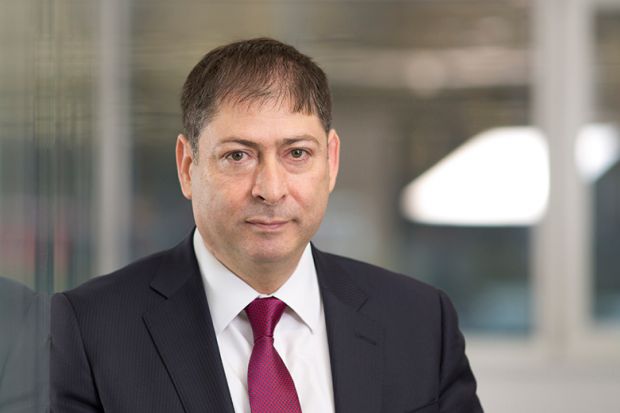I knew that I wanted to be an artist from the age of five. I was living in the tiny village of Makhoul in Galilee, Palestine, and was one of 10 children being raised in a two-room home by a widowed mother. I used to collect stones from the rubble of a bombed-out village nearby and would sit on our front step, carving out small figures with our family’s single knife.
While I didn’t know any artists as such, I was surrounded by people who valued creativity. We were a village of poets. And my own mother was the best knitter on the planet – with the little she had, she was able to clothe her entire family. Her attitude – and her faith that tomorrow can be better than today – influenced all her children. She instilled a work ethic and a passion for creativity that I continue to draw on to this day.
From the age of 13, I had to supplement my schooling with paid work on a building site. It was tough, physical work, but I was determined to educate myself. I left school with the academic credentials needed to attend university, but unfortunately without the financial means.
Instead, I took a job working in a carpentry shop, sweeping floors and tidying the workshop. When my boss discovered that I could draw, he started taking me along on jobs and, later still, when he discovered my passion for carving, he began to involve me in the production process. Eighteen months after starting out in the lowliest role, I was made manager of the workshop.
But the desire to continue both my education and my artistic practice never left me. Working as an instructor for a summer school on the Sea of Galilee brought me to the attention of a Scottish clergyman, who invited me to the Isle of Iona to design and install a public sculpture.
I arrived at Heathrow airport unable to speak more than 100 words of English and promptly became lost on the London Underground for six hours. Then, taking the coach up to Glasgow, I misunderstood the meaning of a rest stop and mistakenly disembarked in Birmingham. Four days, it took me, to journey to Scotland. I ran out of money and had to sleep rough; but with the help of several well-meaning strangers, I eventually got the right buses and boats.
The kindness of the people I met on Iona convinced me that the UK could have a very special role to play in my development as an artist. I was shocked at just how politically aware the residents were, and at how much they knew about the issues faced by Palestinian villagers such as myself.
I sold everything I had, and with the help of a scholarship I was able, aged 25, to commence a BA at Liverpool Polytechnic. The work ethic instilled in me by my mother led me to achieve a first within two years, while simultaneously studying English and holding exhibitions of my work.
Further scholarships enabled me to achieve an MA and then a PhD at Manchester Metropolitan University. I’ll be honest: I didn’t know what a PhD even was before I came to the UK. But the support I received, the way I was encouraged to explore my Palestinian heritage and to engage with issues of culture and identity, was revelatory.
Mine was the first PhD to meld the practical and the theoretical. I interviewed many Palestinian artists, and I was encouraged to use my knowledge of making and doing to further explore artistic responses to the political context. It was a turning point in my life – a moment when I fully understood the contribution that universities can make to furthering understanding of our culture.
A series of academic and then management roles followed. As someone who benefited from highly personalised support during my own education, I became a passionate advocate for engaging with students on an individual level. Nowhere is this more important than in specialist arts institutions where students should be encouraged to develop their own unique practice. That’s why I was drawn to the vice-chancellorship at the University for the Creative Arts. UCA encourages students to pursue their own individual direction.
I am very aware that I benefited from a UK education during an era when overseas students were greeted with open arms. I will never cease to be grateful for the kindness and opportunities extended to me, and I’m all too aware of how different my life could have been had I not received support at key moments.
That’s why I’ve been saddened to witness the increasing barriers implemented by successive governments in the UK. Today, a driven Palestinian villager is very unlikely to have the same opportunities as I had – a state of affairs that I’m determined to challenge as a vice-chancellor.
I’m going to make it my mission to ensure that as many people as possible benefit from a personalised creative education. Wherever they may be in the world, wherever their interests may lie, everyone has their own forms of expression. This should be celebrated because it has the potential to enrich all our lives.
Bashir Makhoul is vice-chancellor of the University of the Creative Arts.
Register to continue
Why register?
- Registration is free and only takes a moment
- Once registered, you can read 3 articles a month
- Sign up for our newsletter
Subscribe
Or subscribe for unlimited access to:
- Unlimited access to news, views, insights & reviews
- Digital editions
- Digital access to THE’s university and college rankings analysis
Already registered or a current subscriber?





